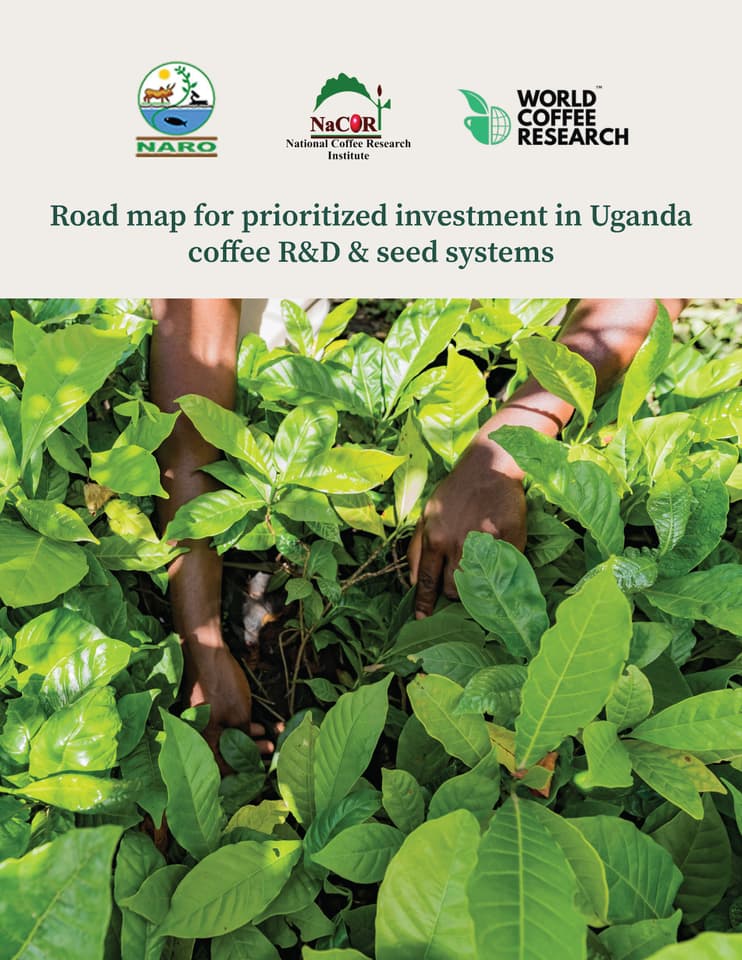
Road map for prioritized investment in Uganda coffee R&D & seed systems
In 2017 Uganda adopted the Uganda Coffee Roadmap, a national plan to increase coffee production to 20 million bags and export earnings to USD$1.5-2.2 billion by 2030. Coffee is an essential part of Uganda’s rural economy and generated over USD$1 billion in 2023/24 and is the 7th-largest exporter of coffee globally. Uganda’s success in improving coffee productivity, as outlined in the Uganda Coffee Roadmap, will have direct and meaningful effects on millions of livelihoods and on the global supply of coffee.
In support of this goal, in October and November 2024, Uganda’s national coffee organizations (NARO/NaCORI, and UCDA) alongside the research arm of the global coffee industry (World Coffee Research) held a series of meetings, including a broad stakeholder gathering, to discuss challenges and opportunities to advance the national Roadmap, and specifically to improve the quality of planting material (seeds and seedlings) through strengthened research and multiplication of improved varieties.
These discussions led to the collaborative development of a roadmap for priority investments in coffee research and seed systems. These priorities support Uganda’s national commitment to increase coffee production, productivity and quality, including the modernization of coffee breeding, development of seed systems that enhance farmer access to improved coffee varieties, and strengthened national coffee research through technology transfer, partnerships and capacity building. This roadmap identifies the top priorities for achieving and scaling enhanced access to quality planting material for Ugandan farmers.
Priority objectives
R&D
- Next-generation market-demanded and climate-resilient coffee varieties are developed, and seamlessly made available to growers
- Proven soil fertility innovations for coffee are developed, validated, and scaled up in farmer’s fields
- Tailor-made plant health innovations for coffee are developed, validated, and deployed in farmer’s fields
- Farmer-compatible agroforestry innovations are developed, validated, and scaled up in farmer’s fields
- Efficient and effective coffee breeding operations are implemented
- Increased short-term approaches for productivity enhancement such as grafted seedlings available to farmers.
- Coffee value-addition activities are developed and scaled to support the diversification of coffee applications
- Establishment of a “Robusta Centre of Excellence” including multi-country engagement in select research areas.
Seed sector
- Efficient and effective seed propagation methods and access pathways are developed and sustained
- A vibrant, efficient, and well-coordinated coffee seed sector is established
- Coffee plantations are rejuvenated without significantly compromising production
- Develop a coffee traceability system and integrate quality control tools
- Improved knowledge and awareness of seed sector stakeholders